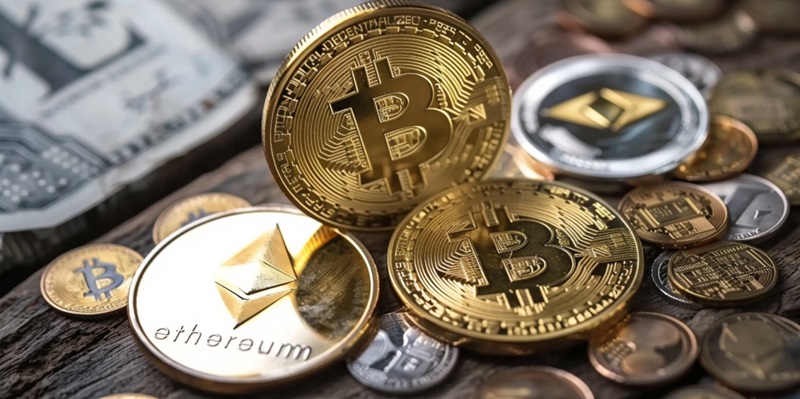In an era of financial uncertainties, Robert Kiyosaki—best known for his bestselling book “Rich Dad Poor Dad”—has voiced strong opinions on the future of traditional currency and the rising value of cryptocurrencies. His perspective offers a unique take on wealth preservation and growth as traditional assets face potential devaluation.
Kiyosaki on the US Dollar’s Future
Declining Value Amidst Soaring Debt
Drifting towards a sea of increasing national debt, the US dollar’s stability seems compromised. Robert Kiyosaki, with his hawk-eyed financial acumen, sees this as a red flag waving in the economic winds. He posits that the growing deficit, exacerbated by persistent government borrowing and spending, could spell disaster for the dollar. As the currency’s buying power dwindles, Kiyosaki advises investors to look beyond the horizon of traditional financial systems. He peers into the realm of digital currencies, urging the savvy to diversify their portfolios to include cryptocurrencies, gold, and silver. By doing so, he believes individuals can shield their wealth from the corrosive effects of potential hyperinflation and currency devaluation.
Cryptocurrency: The New Haven
Kiyosaki shines a spotlight on cryptocurrencies, most notably Bitcoin (BTC) and Ethereum (ETH), as modern instruments of wealth protection. Despite the industry’s volatility and its association with scams, he heralds Bitcoin as the “perfect asset at the right time,” nudging his audience to consider its inclusion in their financial planning. However, Kiyosaki also waves a flag of caution, stressing the importance of due diligence and understanding the crypto landscape before diving in. For him, the intrinsic advantage of holding tangible assets like gold and silver, alongside digital ones such as Bitcoin, lies in their lack of counterparty risk – a stark contrast to traditional financial securities that can often be mired in counterparty complexities.
Broadening Horizons through Financial Education
Critique of Conventional Schooling
Robert Kiyosaki doesn’t mince words when discussing the current state of financial education—or the lack thereof—in traditional schooling. He asserts that the absence of comprehensive financial literacy programs is a crucial miss, especially as individuals navigate through unpredictable economic climates. Through his writings and public speeches, Kiyosaki advocates for a greater understanding of finances, emphasizing how foundational knowledge can empower individuals to make informed decisions about their wealth. For Kiyosaki, being financially educated isn’t simply about knowing how to balance a checkbook—it’s about understanding the mechanisms of investment, the impact of inflation, and the importance of diversification, especially in an age where digital currencies are gaining momentum.
Championing Physical Over Paper Assets
Throughout his advocacy, Kiyosaki consistently favors physical assets, such as gold and silver, over ‘paper’ investments like stocks and bonds. While acknowledging the role of financial instruments in diversification, he prefers tangible assets that can be physically owned. To Kiyosaki, these are the true bulwarks against financial turmoil: assets free from the vicissitudes of corporate governance or government intervention. He advises investors to be wary of products like spot Bitcoin Exchange-Traded Funds (ETFs), suggesting that physical ownership of Bitcoin aligns more closely with his investment philosophy—a strategy appealing especially to retail investors, as opposed to institutional ones who might favor the ease and safety of ETFs.
Crypto Market Dynamics and News Coverage
Cryptocurrency Market Valuation Snapshot
The ever-evolving landscape of the cryptocurrency market continues to captivate the attention of investors worldwide. The prices of digital currencies like Bitcoin and Ethereum fluctuate, reflecting a myriad of factors including market sentiment, regulatory news, and technological advancements. Robert Kiyosaki’s interest in these currencies is based not only on their potential as assets, but also on their role in a potential financial revolution. As he navigates the crypto waters, he pays close attention to their valuation, understanding the broader context of market dynamics. Keeping abreast of market movements and industry developments is key for anyone taking Kiyosaki’s advice to diversify into cryptocurrencies.
Keeping Up with Blockchain and Crypto Developments
In a world rife with economic unpredictability, the author of “Rich Dad Poor Dad,” Robert Kiyosaki, has shared his insights on the evolution of money and the burgeoning relevance of cryptocurrencies. The bestselling author, whose books have educated millions on financial literacy, cautions against the potential decline in value of conventional currencies and assets. He suggests that the future could belong to digital currencies, which might serve as a safeguard against the erosion of traditional wealth. His opinions add a notable perspective to discussions on financial strategy in an age where digital assets are gaining traction. As fiat currencies face trials due to various global economic challenges, Kiyosaki’s views underscore the imperative for alternative approaches to sustaining and accumulating wealth. His advocacy for crypto assets highlights a shift in the investor mindset, aiming for a sound financial footing amidst a transforming economic landscape.

